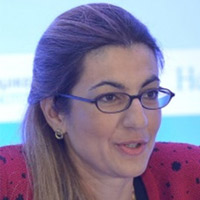

Session Agenda
Enago in collaboration with The Electrochemical Society conducted an interactive online session for research scholars to share practical and effective tips for increasing the citations of research articles and making a significant impact.
In today’s academic publishing landscape, it is as important for researchers to promote their research as it is to publish it in a good journal. The number of times a work is cited indicates its impact on the field. An increase in the citation count undoubtedly has a positive impact on a researcher’s career because universities and funding agencies often look at the number of publications and the citation count jointly, when making tenure and grant decisions. It is also important for the editors to boost citations of the articles published in their journals to maximize the reach of their journals. Through this session, researchers will have an improved understanding of the following:
- Importance of acknowledging the sources in the manuscript
- Understanding the significance of research promotion
- Awareness of various strategies to boost citations
- Effective use of academic and social media networks for endorsing an article
- Measuring the impact of the applied promotion strategy
About the Speaker
 Despina Sanoudou, Ph.D. (Cambridge)
Despina Sanoudou, Ph.D. (Cambridge)
An established researcher, public speaker, and published author, Dr. Sanoudou is an award-winning medical researcher with 181 publications in renowned medical/biomedical journals. The impact of her work is demonstrated by the 5190 citations that she has to her credit. She is also the recipient of more than 20 research grants. Dr. Sanoudou was a post-doctoral fellow as well as an instructor at Harvard Medical School. She has also worked as a coordinator for an international genomics/pharmacogenomics program and as a fellow with Genzyme and Brigham and Women’s Hospital. As a Publication and Training Consultant with Enago Academy, she conducts webinars and workshops to help researchers understand the nuances of academic writing and publishing. To date, Dr. Sanoudou has attended >200 national and international conferences as an invited speaker, served as a peer reviewer for 41 international journals, and chaired several seminars. She is also on the editorial board of multiple international scientific journals.
 Shannon C. Reed, Director of Community Engagement
Shannon C. Reed, Director of Community Engagement
Shannon joined The Electrochemical Society (ECS) in September 2016 as Director of Membership Services and was promoted to Director of Community Engagement in January 2019. At ECS, he works to enhance community engagement; increase the value of ECS membership; grow educational and professional development opportunities; and support constituent experiences. Prior to ECS, Shannon held positions at the University of Houston, Sam Houston State University, and National Corporate Research, Ltd. Through his experience with academia and scholarly societies, Shannon has in-depth expertise in organizational growth, community development, customer service, diversity and inclusion, and challenging the status quo. Shannon believes that networking, continuing education, and leadership development are the keys to growing institutions, engaging communities, advancing individuals’ professional careers, and backing the scientists addressing the world’s most pressing problems.



 Despina Sanoudou, Ph.D. (Cambridge)
Despina Sanoudou, Ph.D. (Cambridge) Shannon C. Reed, Director of Community Engagement
Shannon C. Reed, Director of Community Engagement
